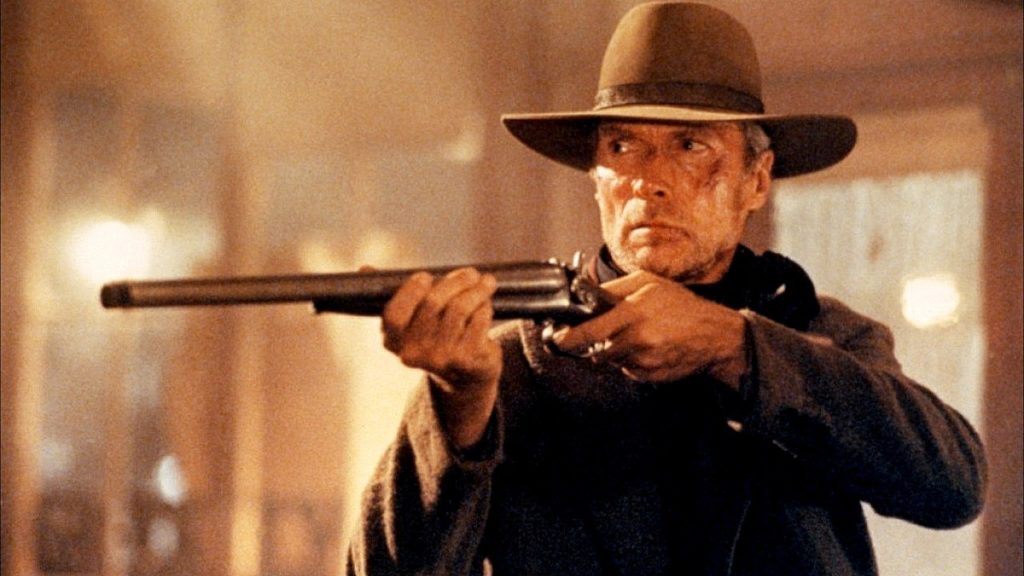50 GREATEST FICTIONAL BADASSES
#2 – WILLIAM MUNNY.
Clint Eastwood is a brilliant filmmaker, nowhere more evident than his 1992 swan song to the western genre, UNFORGIVEN.
Munny is a farmer, faithful widower and caretaker to two small children. In a former life, he was something completely different. The questions the film raises with our conflicting attraction and repulsion towards violence is as significant now as it was the day we crawled out of the muck and mire.
Part of the film’s genius is in its epilogue. We learn after the Big Whiskey massacre, Munny moved to California to prosper in dry goods.
I ruminated on this ending for a long, long time. Why was it important to reveal this information? Wouldn’t it be more powerful to state his house of cards — his decade of contrition — has fully tumbled down, that we cannot escape who and what we really are inside? Eastwood’s answer is that there is no true person we are inside. We are what we are at any given moment; we are what we choose to be.
Munny the penitent father is no more his true self than Munney the killer. We all have horrible things happen to us; they break us down, make us stronger, twist us apart. Some of us take those lessons and become heroes, others villains. The majority of us just march on. Those labels just empty fictions.
In High Plains Drifter, it’s stated more overtly. He’s asked by the town misfit, “What do we do when it’s over?” Eastwood’s reply: “We live with it.”
http://www.youtube.com/watch?v=8wGiJcq95Ug
Little Bill: “Be you William Munny out of Missouri? Killer of women and children?”
Munny: “That’s right. I’ve killed women. I’ve killed children. I’ve killed just about everything that walked or crawled at one point. And now I’m here to kill you, Little Bill, for what you done to Ned.”

